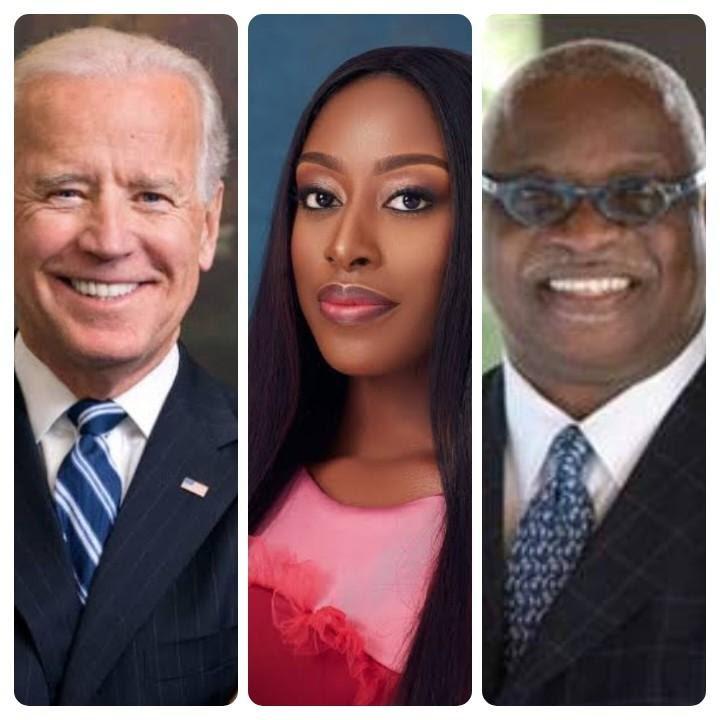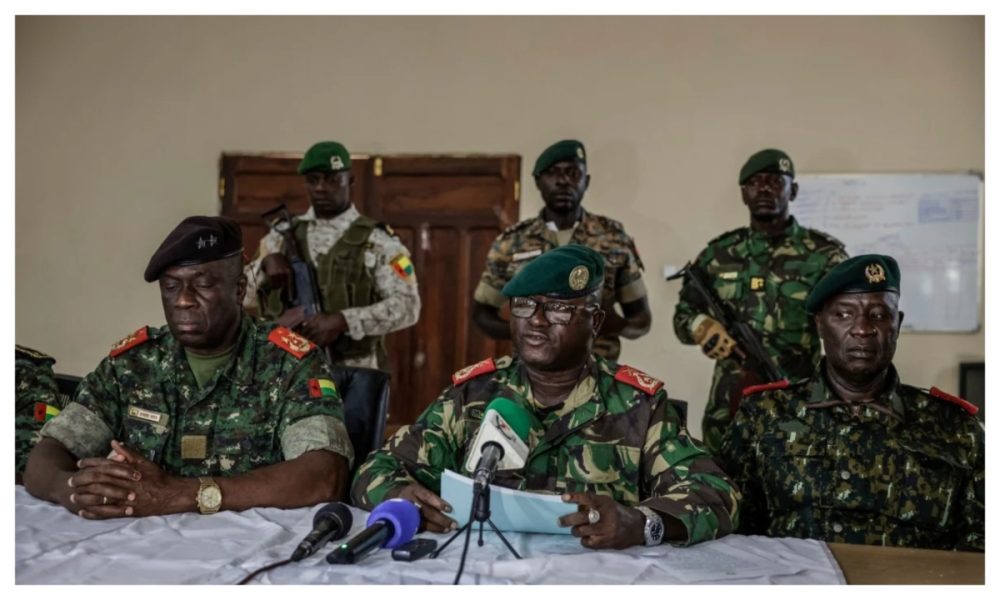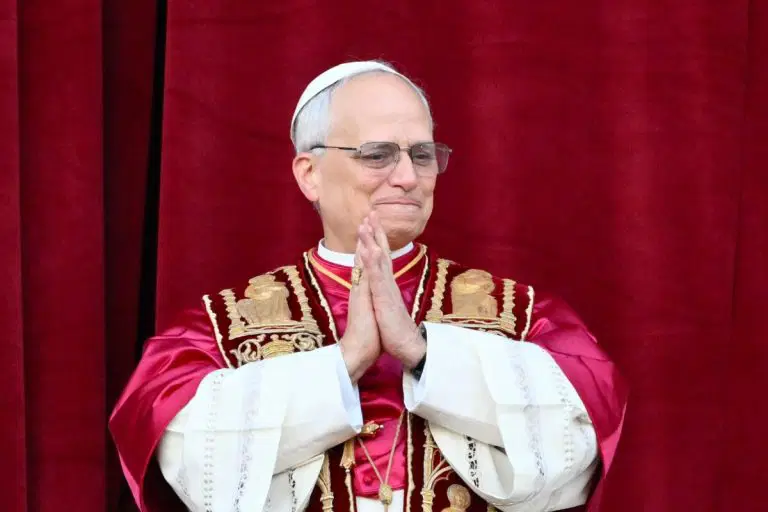Headline
Biden Appoints Two Nigerians, Imasogie, Ogwumike As Advisers

The President of the United States, Joe Biden, has appointed two Nigerians, Osagie Imasogie and Chineye Ogwumike, to the 12-member advisory council on African Diaspora Engagement in the US.
Imasogie and Ogwumike were part of the 12 members of the President’s Advisory Council according to a statement released by the State House on Wednesday.
Other members of the council the members include Silvester Scott Beaman who will chair the council, Mimi E. Alemayehou, Rosalind Brewer, Viola Davis, Helene D. Gayle, Patrick Hubert Gaspard, C.D. Glin, Osagie Imasogie, Almaz Negash, Chinenye Joy Ogwumike, Ham K. Serunjogi, and Kevin Young.
Reacting to the development, Hon. Abike Dabiri-Erewa, Chairman/CEO, Nigerians in Diaspora Commission (NIDCOM) congratulated the duo on their nomination, according to a statement by the Commission’s Head of Media and Public Relations, Abdur-Rahman Balogun.
READ ALSO: Biden To Meet King Charles, Sunak In UK Ahead Of NATO Summit
Dabiri-Erewa she said the nomination of the two great Nigerians into the advisory council is a welcome development, adding that their recognition and appointment into the 12-member advisory council is a motivation for other Nigerians and Africans in general.
Chinenye Ogwumike is a two-time WNBA All-Star for the Los Angeles Sparks and a full-time, multi-platform ESPN commentator and NBA analyst.
She is one of the only full-time professional athletes to also currently hold a full-time regular national sports media broadcast position.
Chineye Ogwumike was the 2014 WNBA Rookie of the Year and is a 2-Time WNBA All-Star (2014, 2018). She is proudly Nigerian-American and graduated from Stanford University with an International Relations degree under the mentorship of Dr. Condoleezza Rice. In August 2020, she became the first Black woman to host a national, daily sports-talk radio show.
READ ALSO: Biden Vows To Fight Republicans’ ‘Extreme’ Anti-abortion Push
The 2021 Forbes 30 under 30 honoree also holds the title of Executive Producer, producing an ESPN Films documentary “144” on the 2020 WNBA season.
Osagie Imasogie on the other hand is the Chairman of the Investment Bank and SEC/FINRA registered Broker-Dealer, Quoin Capital and Quoin Advisors.
In addition, Osagie is a co-founder of PIPV Capital, a private equity firm that is focused on the life sciences vertical and has invested over $1 billion into that industry.
Prior to co-founding PIPV Capital, he established GlaxoSmithKline Ventures and was its founding Vice President.
READ ALSO: Biden, 80, To Undergo Medical Checkup Ahead Reelection Bid
Osagie has held senior commercial and R&D positions within pharmaceutical companies such as GSK, SmithKline Beecham, and DuPont Merck. He has also been a Price Waterhouse Corporate Finance Partner as well as a practicing attorney with leading U.S. law firm, Schnader, Harrison, Segal & Lewis.
Osagie is a serial entrepreneur and investor who serves on the board of a number of financial institutions such as FS-KKR Capital Corp and Haverford Trust, institutions that cumulatively manage over $28 billion. He is an adviser to Brown Advisory, a firm that manages in excess of $140 billion. Osagie is the Vice-Chair of the Executive Committee of the Philadelphia Museum of Art and a member of the Executive Committee and Chair of the Nominating & Governance Committee of the Philadelphia Orchestra and Kimmel Center.
In addition, Osagie is a Trustee of the University of Pennsylvania, a member of the Executive Committee of the University, and is also the Chairman of the Board of the University of Pennsylvania Carey Law School, where he is an Adjunct Professor of Intellectual Property. Osagie holds LLM degrees from the London School of Economics and the University of Pennsylvania Carey Law School, and is a member of the New York State Bar in addition to being admitted to practice in other jurisdictions
Almaz Negash, Member.
Headline
Coup: Guinea-Bissau Junta Releases Six Held Opposition Politicians

Guinea-Bissau’s ruling junta on Tuesday released six members of the political opposition who had been detained since a coup last month.
The six freed opposition members are said to be close associates of Domingos Simoes Pereira, head of the PAIGC party that led the country to independence in 1974.
Pereira has been in custody since the coup.
In a statement by the High Military Command, the junta’s governing body, the releases are described as a sign of good faith and a step towards the return to constitutional normality and respect for international rights.
READ ALSO:Why West African Troops Overturned Benin’s Coup But Watched Others Pass
The army seized power on 26 November after ousting outgoing President Umaro Sissoco Embalo in the wake of a presidential vote.
After taking over, the military suspended the electoral process and announced it would take control of the West African country for a period of one year.
Recall that another opposition candidate, Fernando Dias, took refuge in Nigeria’s embassy, which granted him asylum, while Embalo fled the country after being briefly detained by the military at the time of the coup.
Meanwhile, Senegal’s Foreign Minister, Cheikh Niang, led a delegation to Guinea-Bissau, where he met with detained opponents and requested their release.
Headline
7 Territories Still Under Colonial Rule

Even though most nations became independent in the last century, some territories are still ruled by other nations.
Contents
1. Western Sahara
2. Guam
3. American Samoa
4. United States Virgin Islands
5. Falkland Islands / Malvinas
6. Gibraltar
7. Bermuda
Many of them remain on the United Nations list of non-self-governing territories, meaning they have not completed the process of decolonization. These places usually depend on bigger countries for laws, passports, defence, or political control.
In this article, Nigerian Tribune highlights 7 territories still under colonial rule:
READ ALSO:Nigeria Ranks World’s 102nd Happiest Nation, US, Germany Not Among 20 Top Counties
1. Western Sahara
Western Sahara remains one of the world’s biggest unresolved colonial issues. Morocco controls most of the territory, but the Polisario Front wants independence for the Sahrawi people. The UN is still trying to help both sides agree on a peaceful solution.
2. Guam
Guam is an important US territory in the Pacific, used heavily for American military operations. The US oversees its defence and foreign relations.
People living there are US citizens, but they cannot vote in presidential elections and do not have full representation in Congress.
READ ALSO:FULL LIST: US To Review Green Cards From 19 ‘Countries Of Concern’ After Washington Shooting
3. American Samoa
American Samoa has more local control than Guam, but the United States still decides immigration, defence, and foreign affairs.
Residents are considered US nationals and must apply if they want full citizenship.
4. United States Virgin Islands
The US Virgin Islands have their own legislature, but the United States makes major constitutional and political decisions. The territory depends heavily on US federal support.
5. Falkland Islands / Malvinas
The Falkland Islands remain controlled by the United Kingdom (UK), but Argentina has long disputed this claim, having been in control of the Islands for a few years before 1833.
The people living there voted strongly to stay British, yet the sovereignty dispute continues to appear in the UN.
READ ALSO:Six Countries With Highest Number Of Billionaires In 2025
6. Gibraltar
Gibraltar sits at the Southern tip of Spain. The United Kingdom controls it, but Spain insists the territory belongs to them.
Gibraltarians have repeatedly voted in favour of remaining British, but the dispute is still discussed within the UN Decolonisation Committee.
7. Bermuda
Bermuda is a British Overseas Territory situated in the North Atlantic Ocean. Although it manages most of its own internal affairs and enjoys a strong economy with modern facilities, the United Kingdom still handles its defence and represents it in global matters.
Headline
Russia-Ukraine War: Pope Leo Calls For Global Christmas Truce

Pope Leo XIV on Tuesday renewed his call for a global truce on Christmas Day, saying he felt “great sadness” after Russia “apparently rejected a request” for a pause in fighting.
Speaking to reporters at his residence in Castel Gandolfo near Rome, the Pope urged all sides involved in conflict to observe at least one day of peace.
“I am renewing my request to all people of goodwill to respect a day of peace — at least on the feast of the birth of our Saviour,” Leo said.
Recall that Russia invaded Ukraine in February 2022 and has repeatedly turned down calls for a ceasefire, arguing that any pause would give Ukraine a military advantage.
READ ALSO:Russian Strikes Kill Five In Ukraine, Cause Power Outages
“Among the things that cause me great sadness is the fact that Russia has apparently rejected a request for a truce,” the pope said.
Referring to conflicts worldwide, Leo added, “I hope they will listen and there will be 24 hours of peace in the whole world.”
The appeal came as fighting continued in eastern Ukraine. On Tuesday, Ukrainian forces withdrew from a town after heavy battles with Russian troops. Russian strikes killed three civilians and left thousands without power during winter temperatures.
READ ALSO:Trump Blasts Ukraine For ‘Zero Gratitude’ Amid Talks To Halt War
There was no indication of progress toward ending the war after separate meetings last weekend in Miami between the United States officials and negotiators from Russia and Ukraine. The conflict is nearing four years with no settlement in sight.
Earlier this month, Pope Leo met Ukrainian President Volodymyr Zelensky. When asked whether he would accept Zelensky’s invitation to visit Ukraine, the pope said, “I hope so,” while noting that it was not possible to say when such a visit could happen.
Leo also warned that efforts to secure peace without European diplomatic involvement were “unrealistic”, expressing optimism that President Donald Trump’s proposed peace plan could bring a “huge change” to the transatlantic alliance.

 News3 days ago
News3 days agoPHOTOS: New Era In Furupagha-Ebijaw As Okpururu 1 Receives Staff Of Office

 Metro5 days ago
Metro5 days agoJUST IN: Former Edo Information Commissioner Is Dead

 News2 days ago
News2 days agoUBTH CMD Marks 120 Days In Office, Expresses Commitment To Providing Conducive Working Environment

 News3 days ago
News3 days agoFG Declares Public Holidays For Christmas, New Year Celebrations

 Metro5 days ago
Metro5 days agoShe Grabs, Pulls My Manhood Anytime We Fight — Husband

 News2 days ago
News2 days agoOPINION: Gumi And His Terrorists

 Metro5 days ago
Metro5 days agoWhy I Charged My Husband Money For Sex —Woman

 News2 days ago
News2 days agoOPINION: My Man Of The Season

 News2 days ago
News2 days agoFIRS Confirms NIN As Tax ID

 News5 days ago
News5 days agoMy Wife Dented My Image, Took Our Marital Crises To Radio Stations — Husband




























